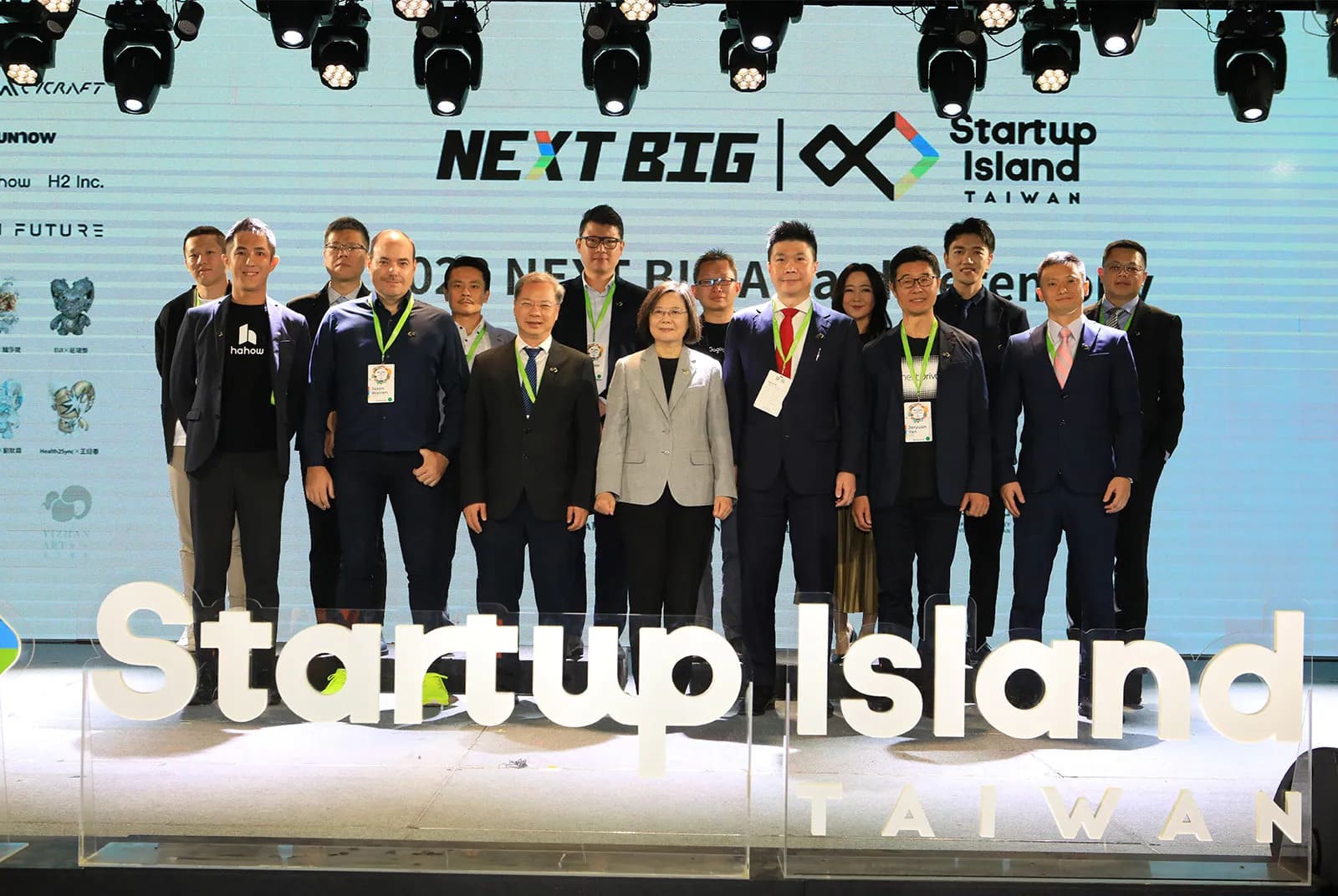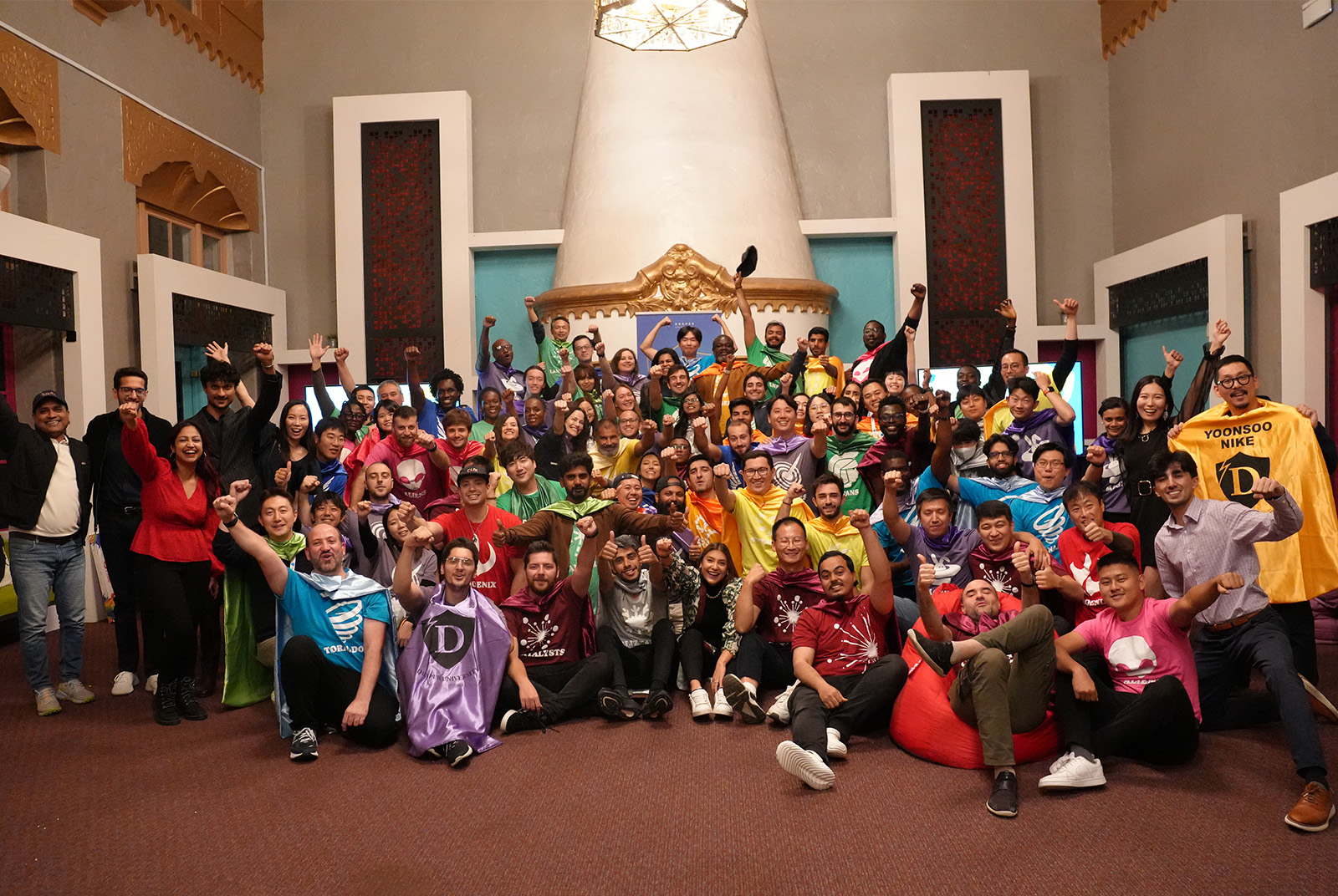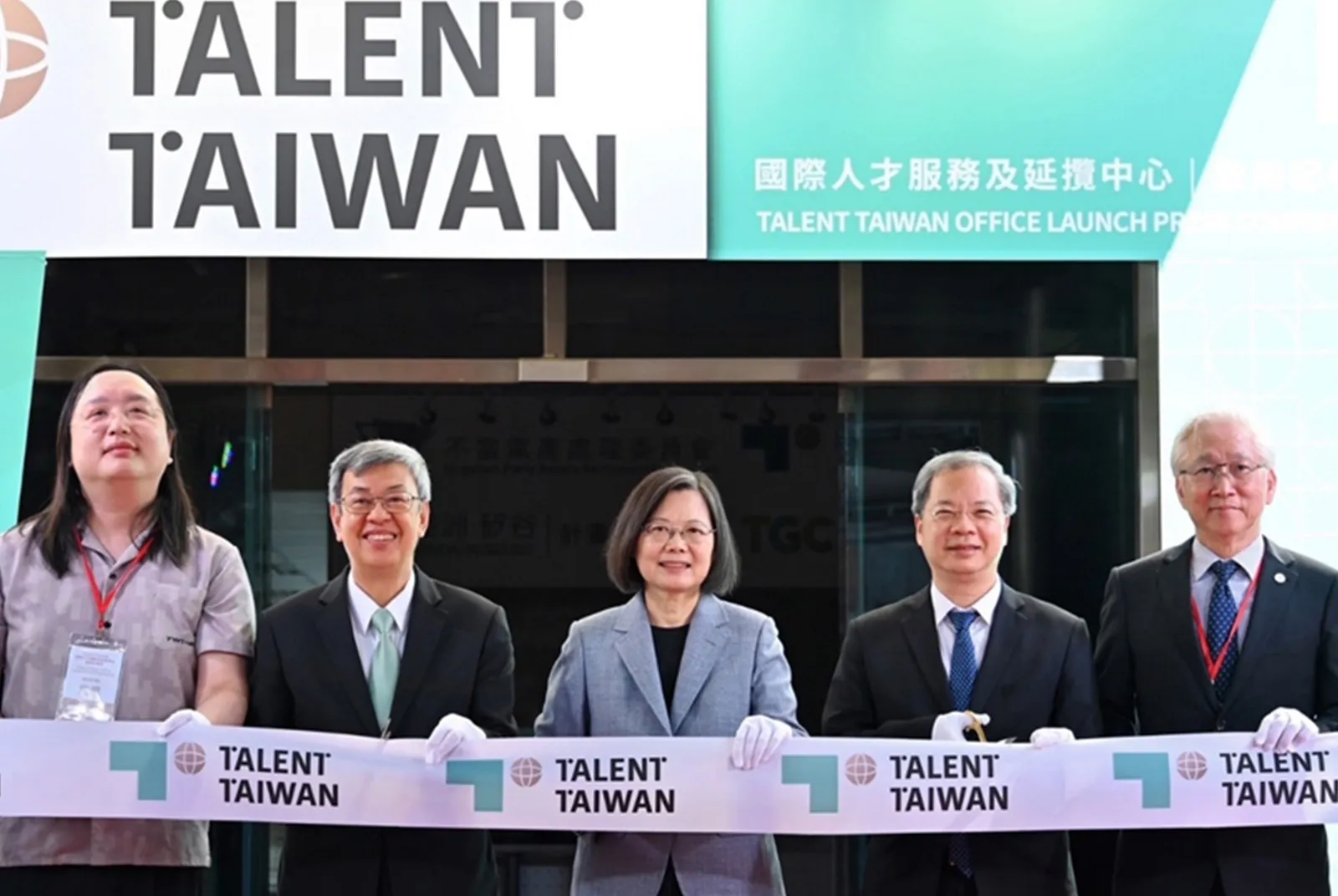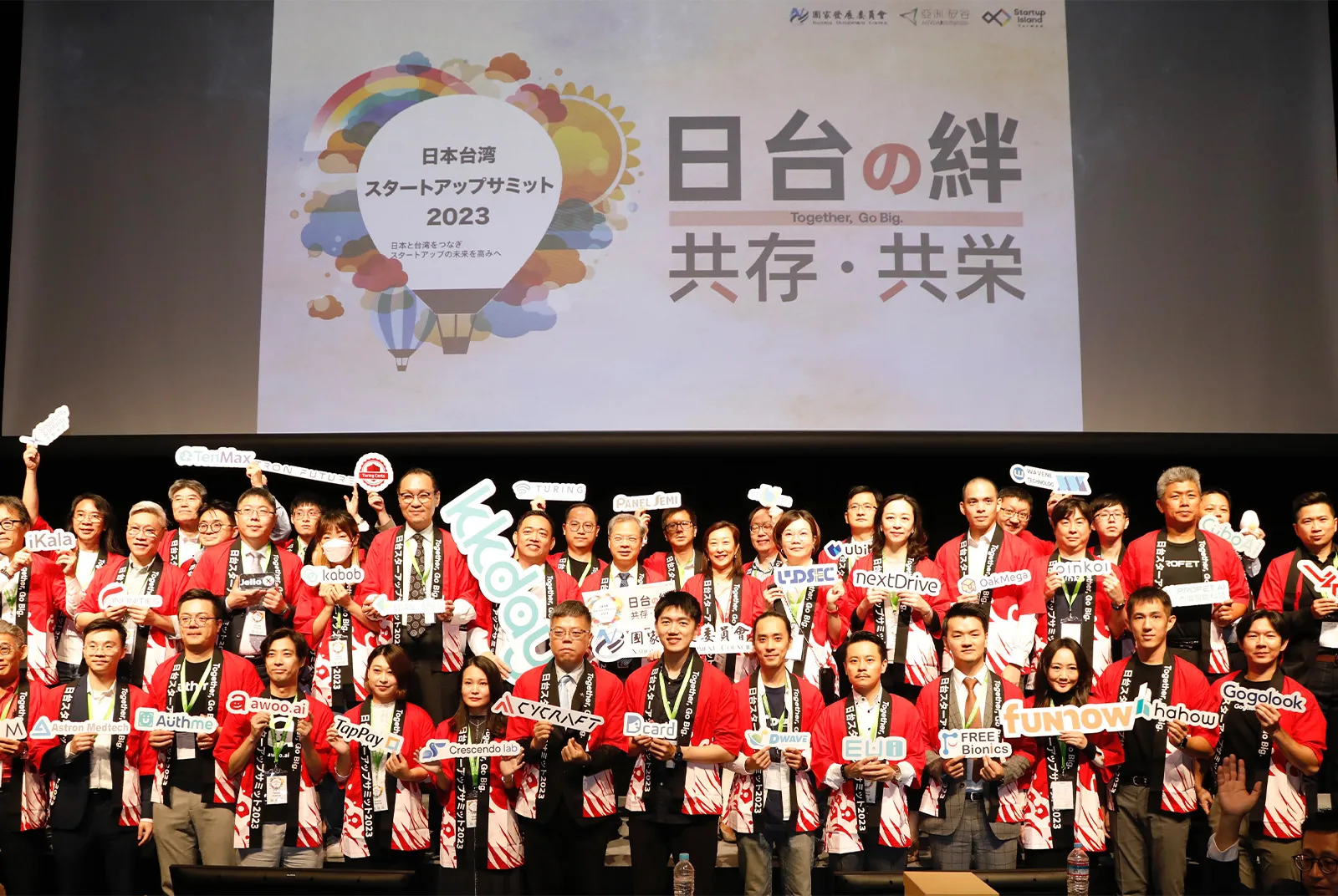The Asia Silicon Valley Development Plan 2.0 : Transforming Taiwan into an AIoT Innovation Hub

Source:National Development Council. Description: 2023 Next Big Awards Ceremony
Innovation is the essence of national strength. Taiwan must transition from an OEM-based economy to one focused on technological innovation to maintain its stance on the global stage. In 2016, the government launched the "5+2 Innovative Industries Plan," with the Internet of Things (IoT) being one of the key sectors. To connect with innovative technologies from the Silicon Valley and help Taiwanese industries seize new opportunities driven by IoT, the National Development Council (NDC) formulated the "Asia Silicon Valley Development Plan," which was approved by the Executive Yuan in September of the same year. The plan aims to drive Taiwan's new economic development with two main drivers: "stimulating economic growth through innovation and entrepreneurship" and "promoting industrial transformation and upgrading through IoT."
Views
The Asia Silicon Valley Development Plan 2.0 : Transforming Taiwan into an AIoT Innovation Hub
By 天下整合傳播部Sponsored Content
Two-Phase Implementation: Fostering Startups
From 2016 to 2023, the Asia Silicon Valley Development Plan has gone through two phases: 1.0 (2016-2020) and 2.0 (2021-). These stages have moved from laying the foundation to deepening and expanding, effectively promoting the innovative development of Taiwan's IoT industry. "Through these two phases, Taiwan has seen the emergence of numerous IoT and startup companies. We must continue to push these startups towards larger international markets," said Paul Lee, CAO of the Asia Silicon Valley Development Agency(ASVDA).
Providing Funding: Supporting Startups to Surge Forward
How is this achieved? Continuously improving the innovation and entrepreneurship ecosystem has always been a crucial goal of the Asia Silicon Valley Development Plan. This involves multifaceted tasks, including funding, talent, regulations, markets, and venues, all of which are indispensable.
Firstly, funding is a crucial driver of innovation and entrepreneurship. To prevent innovators from facing the dilemma of bricks without straw, the National Development Fund initiated a NT$1 billion "Business Angel Investment Program" in 2018, further increasing the allocation to NT$5 billion in 2020. As of November 30 this year, 247 startups have benefited from the program. Moreover, to help startups overcome challenges posed by the pandemic, the "Startup Relief Financing Program" has been in place since June 2021. By September 2023, it has assisted 1,158 startups in securing NT$12.29 billion in financing. With financial support, startups are able to surge forward. Currently, over 160 startups have successfully raised more than USD 2 million each, and 31 have successfully IPO'd or been merger.
Cultivating New Startup Talent: Easing Talent Recruitment
Beyond financial resources, talent is also essential. To connect internationally and cultivate innovative talents, since 2018, the ASVDA has collaborated with Draper University in Silicon Valley to conduct the "Entrepreneurial Hero Camp." To date, 84 participants have been sent to the U.S. for training. Additionally, the Asia Silicon Valley Development Plan offers opportunities for internships and training at Intel and Stanford.

Participants of the DU Entrepreneurial Hero Camp receiving training in Silicon Valley, USA
Not just in Taiwan, but all around the world, countries are actively investing in innovation, making exceptional talent highly sought after. In the global competition for talent, countries have deployed strategies to attract such talent, and Taiwan is no exception. The "Act for the Recruitment and Employment of Foreign Professionals" has significantly relaxed the regulations restricting foreign talents from coming to, staying, and working in Taiwan. This includes easier visa application processes and tax incentives, particularly the Taiwan Employment Gold Card, which combines a work permit, residence visa, alien resident certificate, and re-entry permit. This card has been well received by foreign professionals, with over 8,535 issued by the end of October this year, proving to be an effective tool in attracting international talent to work in Taiwan. Aiming to reach a target of recruiting 70,000 people, the National Development Council established the Talent Taiwan Office, an international talent service and recruitment center, in November this year, serving not only Gold Card holders but also other foreign professionals and their families. In the future, the application process for foreign talents coming to Taiwan and their needs for housing, banking, children's education, taxation, labor, and health insurance can be handled through the Center's one-stop service.

Talent Taiwan Office
Establishing Innovative Venues: Driving Smart Urban and Rural Development
Venue construction is equally important for innovation and entrepreneurship. According to a survey under the Asia Silicon Valley Development Plan, there are currently 93 startup bases, 78 accelerators, 150 incubators, and several national-level startup bases in Taiwan, such as TTA in Taipei and the Startup Terrace in Linkou. These venues are vital platforms for promoting innovation, business cooperation, and accelerated development. Paul Lee emphasized, "We are committed to introducing a variety of support measures and removing entrepreneurial obstacles one by one, which are essential practices for fostering the robust development of entrepreneurship and innovation."
With these concerted efforts, innovation and entrepreneurship are flourishing throughout Taiwan. They are combining innovative and digital technologies such as 5G ORAN, blockchain, big data, cloud technology, digital twins, and the metaverse to promote various smart urban and rural projects. To date, there are 263 successful domestic cases and 93 have been successfully exported overseas.
Market Validation: Strengthening International Cooperation
For startups, the market is ultimately the final stage of validation. To assist startups in expanding into international markets, the ASVDA actively establishes international cooperation platforms, participates in major international exhibitions, and forms strategic alliances with overseas partners. Paul Lee further stated, "Through collaboration with renowned international accelerators, the Asia Silicon Valley Development Plan connects Taiwanese innovation with global resources. This not only broadens the international perspective of Taiwanese startups but also creates opportunities to enter the global market."
Amid geopolitical influences, Taiwan's visibility and importance on the international stage have gradually increased in recent years. This presents an excellent opportunity for Taiwan's industries to expand globally, advancing into markets in the United States, Europe, and Southeast Asia. With the resources injected by the Asia Silicon Valley Development Plan, it is expected that more Taiwanese AIoT businesses and startups will step onto the global stage, contributing Taiwan's intelligence and strength to global innovation.

2023 Together, Go Big. Japan-Taiwan Startup Summit
Related links:
1. ASVDA: https://www.asvda.org/
2. Startup Island TAIWAN: https://www.startupislandtaiwan.info/
3. Taiwan Employment Gold Card: https://goldcard.nat.gov.tw/zh/
<Advertisement by the National Development Council>






